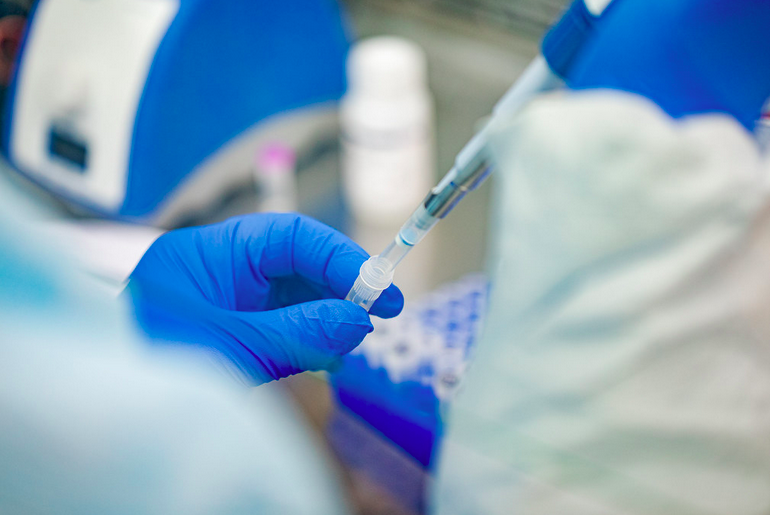A $900 COVID Test? Taxpayer-Funded Covid Testing Program Failing to Get Off the Ground in PA Schools

An $87 million contract between the state and Gingko Bioworks to provide Covid-19 testing to schools across the commonwealth is floundering, just as Pennsylvania schools are struggling to maintain in-person instruction amidst a major spike in cases of the Omicron variant.
The testing program has distributed about 97,000 swabs, according to state data released Thursday. It’s not known if the number of swabs represents the total number of students and school employees tested, given that some may have been tested multiple times.
But if the 97,000 figure represents a one-to-one ratio for tests, that would mean about 5.7% of the total statewide student body had been tested. There are an estimated 1.7 million children in K-12 across the commonwealth.
This amounts to roughly $900 per test based on the funds allocated to the program thus far, although the cost per test is almost certain to drop before the contract ends in the summer.
Pennsylvania is paying for the program with federal dollars. The contract notes that the $87 million figure is an estimate, but it is not clear how much room there is for that price tag to come down. The Pennsylvania Department of Health and Gingko Bioworks did not respond to requests for comment.
Other information provided by the state indicates that 293 schools are enrolled in the testing program, while another 442 are in the “onboarding” process, something that could take weeks. With roughly 3,100 total schools, the program has only enrolled about 9.5% of the total available, with 14% onboarding.
When state officials announced the contract in mid-August, the Pennsylvania Department of Health was optimistic that the testing contract would play an important role in helping schools avoid virtual learning in the upcoming 2021-22 school year.
“It’s clear that everyone wants to keep kids in the classroom and keep extracurricular activities going,” Acting Health Secretary Alison Beam said at the time. “That’s why we’re encouraging all K through 12 schools to take advantage of this unique opportunity.”
Elements of the testing contract document go into further detail.
“Testing is a step in limiting the spread of this virus. While vaccines are still being administered, the vaccines have not been authorized for use in children under 12 years old. Testing is an additional measure to quickly identify individuals with COVID-19 and stop the spread before it becomes a large outbreak and triggers a school to close,” the document says.
In October, Beam also said the state was facing continued hesitation from schools to opt in, according to a report from WHYY.
“Any reluctance on the part of the schools may be because we need to continue educating them on the availability of it,” Beam said during a recent news conference. “And of course, we’ve tried, ad nauseam, to make sure schools are aware of it.”
Last week the Biden administration announced it would begin delivering millions of free Covid tests to schools around the country.
“Though most U.S. schools remain open, some have temporarily closed as the Omicron variant spreads around the country, infecting children and staff,” the Wall Street Journal reported. “President Biden has repeatedly said he wants schools to remain open, and he has advocated for additional testing as a solution for keeping children in the classroom.”
A Monday report from the Pittsburgh Tribune-Review noted that school districts who were already testing would welcome the additional resources, but districts that were not testing planned on holding course.
“Burrell School District ‘is not interested in testing students or staff,’” Superintendent Shannon Wagner told the Tribune-Review.
Likewise, Hempfield Area schools are not testing, nor are Franklin Regional, New Kensington-Arnold, Norwin or Penn-Trafford, officials told the Tribune-Review.
The state webpage with testing data from the Ginkgo program also gives a hint into the bureaucratic hurdles that come with enrolling.
“There is an onboarding process once a school submits a Statement of Assurances which can take several weeks to complete,” the website notes. “This onboarding process includes developing a school and site specific testing plan, communicating the plan with the school community, staff training and ensuring individual consent is received and documented for participants.”
On Jan. 7, the Pennsylvania chapter of the American Federation of Teachers union asked the Wolf administration to mandate stringent mitigation protocols for all schools, or failing that, order a two-week pause to in-person learning.
This article first appeared in Broad + Liberty.
Follow us on social media: Twitter: @DV_Journal or Facebook.com/DelawareValleyJournal


